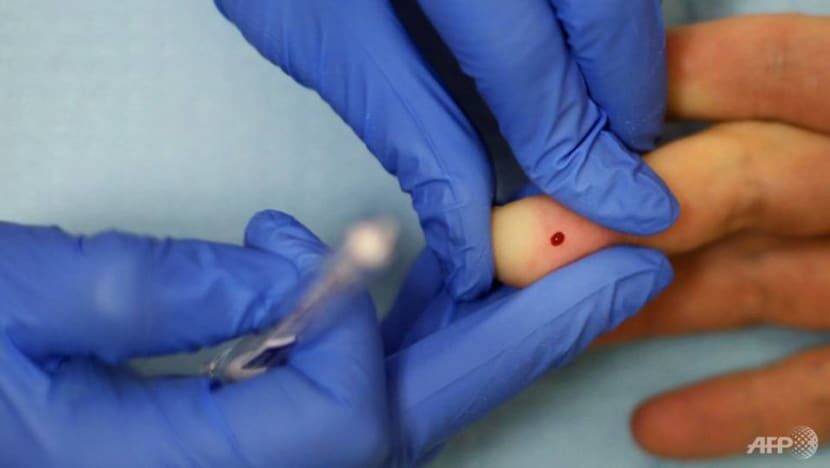A total of 188 cases were reported between January and October, MOH said in an update on the HIV and AIDS situation in the country.
This comes after three consecutive years of declining cases, with last year's number - 202 cases - being the lowest since 1998. There were 250 new HIV infections in 2021, 261 in 2020, and 323 in 2019.
Comment: So people abstained during, and just following lockdowns, thus resulting in lower rates of infection?
Of the 104 cases reported between January and June, 97 per cent were male and 48 per cent had a late-stage HIV infection at the time of their diagnosis, which is 11 per cent lower than the figure for the same period last year.
Twenty-seven per cent were aged between 30 and 39, while 21 per cent were 40 to 49 years old and 23 per cent were 50 to 59 years old.
Sexual intercourse remained the main mode of HIV transmission, accounting for 96 per cent of the cases reported in the first half of the year, MOH said.
Heterosexuals accounted for 28 per cent of the 104 cases, while 68 per cent of the cases occurred in men who have sex with men. This includes men who reported sexual activity with men and women, who accounted for 4 per cent of cases.
One case occurred as a result of intravenous drug use.
More than half of the newly reported cases - 58 per cent - were detected during the course of medical care, of which a greater proportion were at a late stage of HIV infection compared with other modes of detection, MOH said.
Another 13 per cent were detected through routine programmatic HIV screening, while 18 per cent were detected through self-initiated HIV screening. The rest were detected through other forms of screening.
A higher proportion of men who have sex with men had their infections detected via self-initiated HIV screening compared to heterosexuals, at 25 per cent and 3 per cent respectively.
In a public advisory, MOH said that every adult should get tested for HIV at least once in their lifetime regardless of risk factors.
"Individuals who engage in high-risk sexual behaviours should go for regular HIV testing every three to six months," the ministry added.
MOH also said that knowing one's HIV status enables one to receive treatment early and prevent others from getting infected.
"With early and effective treatment, persons living with HIV can lead lives no different from others," the ministry said.
"Although there is no cure for HIV, persons living with HIV can be treated with antiretroviral therapy which is effective at controlling the infection.
"This also provides an opportunity to protect their partners from infection as people living with HIV who are on regular treatment and have an undetectable viral load have practically no risk of transmitting the virus to their sexual partners."
It noted that 94 per cent of Singapore's residents who are living with HIV and undergoing treatment have achieved an undetectable viral load.
MOH added that the most effective way to avoid contracting HIV is to remain faithful to one's spouse or partner and to avoid casual sex or sex with sex workers.
The ministry also strongly advised those who have multiple sexual partners or engage in casual or commercial sex to use condoms consistently and correctly to reduce their risk of contracting HIV and other sexually transmitted infections.
"In addition, preventive measures like HIV pre-exposure prophylaxis are highly effective when used as part of a comprehensive HIV prevention strategy," MOH said.




We each should be aware of all of the "mysterious" increase in various diseases following the "vax".
For example, turbo cancer, myocarditis and heart attacks, RSV(respiratory syncytial virus), pneumonia, liver disease, and HIV. The vax has suppressed the immune system and created the storm of cancers and auto-immune disease rebounds.
I watched World War Z on a free channel with advertisements(I scan through it). Pfizer was there with its RSV, Pneumonia, Flu and Covid vaccines to "protect" you . I would question taking any vax at this point. Are they using mRNA, nanotechnology, lipid nanoparticles in other vaccines? Who would be monitoring to stop them; FDA, CDC, NIAID, WHO, FBI, CIA?